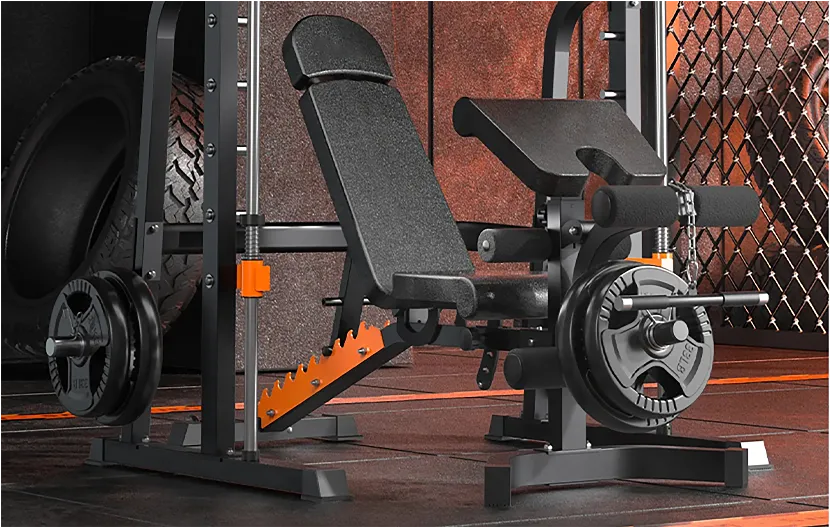Exploring the Versatility and Applications of Rolled Steel Tubes in Modern Construction and Manufacturing
Aug . 07, 2024 19:40
Understanding Rolled Steel Tubes Applications, Benefits, and Manufacturing Process
Rolled steel tubes are versatile components widely used in various industries, ranging from construction to automotive engineering. The manufacturing of rolled steel tubes involves a series of processes that transform raw steel into strong, durable tubes that can be used in multiple applications. This article delves into the manufacturing process, advantages, and applications of rolled steel tubes.
The Manufacturing Process
The production of rolled steel tubes typically begins with selecting the appropriate steel grade and composition. The process can be broadly divided into several stages
1. Steel Production Raw materials like iron ore, coke, and limestone are melted in a blast furnace to produce molten steel. This steel is then refined to remove impurities and to achieve the desired chemical composition.
2. Casting The molten steel is poured into molds to create billets or slabs. These shapes are easier to handle and can be reheated efficiently for further processing.
3. Reheating The cast billets are heated in a furnace until they reach a plastic state, making them malleable enough for shaping.
4. Rolling The heated billets are passed through a series of rollers. This process, known as hot rolling, reduces their cross-section into a tube shape. Eventually, the tube is formed by either the seamless or welded tubing processes. In the seamless process, the billet is pierced and elongated without seams, while in the welded process, the edges are joined together using welding techniques.
5. Cooling and Finishing After rolling, the tubes are allowed to cool before undergoing various finishing processes like cutting, straightening, and surface treatment to enhance their properties and ensure dimensional accuracy.
6. Quality Control Rigorous testing is conducted to ensure that the final products meet industry standards. This includes checking for defects, dimensional tolerances, and mechanical properties.
rolled steel tube
Advantages of Rolled Steel Tubes
Rolled steel tubes offer numerous benefits that make them a preferred choice for various applications
- Strength and Durability Steel is known for its high tensile strength. Rolled steel tubes can withstand substantial loads and resist deformation, making them ideal for structural applications.
- Versatility Rolled steel tubes can be manufactured in various sizes, shapes, and thicknesses, allowing them to serve a wide array of purposes. They can be used in oil and gas pipelines, construction scaffolding, and automotive components.
- Corrosion Resistance By applying coatings or using alloyed steel, rolled steel tubes can exhibit superior resistance to corrosion, extending their lifespan and reducing maintenance costs.
- Cost-Effectiveness The manufacturing processes have become more efficient, which helps in reducing production costs without compromising quality. This makes rolled steel tubes a cost-effective option for many industries.
Applications
The applications of rolled steel tubes are vast and varied. In the construction industry, they are used for structural beams, supports, and frameworks, thanks to their strength and ability to bear heavy loads. In the automotive sector, rolled steel tubes serve as components for exhaust systems, chassis, and other parts that require both toughness and lightweight properties.
Additionally, rolled steel tubes are crucial in industries such as energy, where they are utilized in the construction of pipelines for transporting oil, gas, and water. Their ability to resist high pressures and corrosive environments makes them indispensable in maintaining the integrity of these systems.
In conclusion, rolled steel tubes are an essential product in modern manufacturing and construction. Their strength, versatility, and cost-effectiveness make them suitable for a multitude of applications across various industries. As technology continues to advance, the production techniques and quality of rolled steel tubes are expected to improve, further enhancing their role in infrastructure and industrial development.
 Afrikaans
Afrikaans  Albanian
Albanian  Amharic
Amharic  Arabic
Arabic  Armenian
Armenian  Azerbaijani
Azerbaijani  Basque
Basque  Belarusian
Belarusian  Bengali
Bengali  Bosnian
Bosnian  Bulgarian
Bulgarian  Catalan
Catalan  Cebuano
Cebuano  Corsican
Corsican  Croatian
Croatian  Czech
Czech  Danish
Danish  Dutch
Dutch  English
English  Esperanto
Esperanto  Estonian
Estonian  Finnish
Finnish  French
French  Frisian
Frisian  Galician
Galician  Georgian
Georgian  German
German  Greek
Greek  Gujarati
Gujarati  Haitian Creole
Haitian Creole  hausa
hausa  hawaiian
hawaiian  Hebrew
Hebrew  Hindi
Hindi  Miao
Miao  Hungarian
Hungarian  Icelandic
Icelandic  igbo
igbo  Indonesian
Indonesian  irish
irish  Italian
Italian  Japanese
Japanese  Javanese
Javanese  Kannada
Kannada  kazakh
kazakh  Khmer
Khmer  Rwandese
Rwandese  Korean
Korean  Kurdish
Kurdish  Kyrgyz
Kyrgyz  Lao
Lao  Latin
Latin  Latvian
Latvian  Lithuanian
Lithuanian  Luxembourgish
Luxembourgish  Macedonian
Macedonian  Malgashi
Malgashi  Malay
Malay  Malayalam
Malayalam  Maltese
Maltese  Maori
Maori  Marathi
Marathi  Mongolian
Mongolian  Myanmar
Myanmar  Nepali
Nepali  Norwegian
Norwegian  Norwegian
Norwegian  Occitan
Occitan  Pashto
Pashto  Persian
Persian  Polish
Polish  Portuguese
Portuguese  Punjabi
Punjabi  Romanian
Romanian  Samoan
Samoan  Scottish Gaelic
Scottish Gaelic  Serbian
Serbian  Sesotho
Sesotho  Shona
Shona  Sindhi
Sindhi  Sinhala
Sinhala  Slovak
Slovak  Slovenian
Slovenian  Somali
Somali  Spanish
Spanish  Sundanese
Sundanese  Swahili
Swahili  Swedish
Swedish  Tagalog
Tagalog  Tajik
Tajik  Tamil
Tamil  Tatar
Tatar  Telugu
Telugu  Thai
Thai  Turkish
Turkish  Turkmen
Turkmen  Ukrainian
Ukrainian  Urdu
Urdu  Uighur
Uighur  Uzbek
Uzbek  Vietnamese
Vietnamese  Welsh
Welsh  Bantu
Bantu  Yiddish
Yiddish  Yoruba
Yoruba  Zulu
Zulu 












